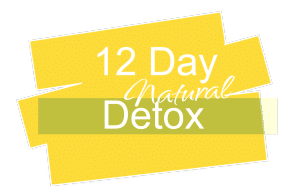Trigger warning: This essay discusses rape.
Memory #1: The Sound
At 1:15 in the morning, on a bitter cold February night, the sound of clunky boots pounding on the wooden steps that led to my door woke me from a peaceful sleep. Then I heard frantic knocking. Prior to the banging, I thought it may have been the guy I was dating, a casual relationship over the past month. I opened the door, but it was someone else, someone I had knows for about half a year, but I trusted him. He must have needed help.
I didn’t think about the possibility that soon I would need help. This guy and I hung out with mutual friends. He helped me find my studio apartment above his friend’s garage six months earlier. He was married, soon to be divorced. I could see he was drunk when he stepped into my room. He sat next to me on my makeshift couch, lowered his head and cried. He wanted to talk, said he felt lonely, said he missed his wife.
We talked for a few minutes about his impending divorce and as I consoled him with positive talk about his future, I wondered simultaneously how I would get him out of my place. My apartment was isolated from the house it was attached to, a lone room above a garage. In fact the downstairs homeowners were both alcoholics and one of them was on oxygen, a few months away from death. He was the kind of man who cheated on his wife with young girls while she was at work. I caught him once when I made a surprise visit to my place in the middle of the day. A girl with long blonde hair hurried out his front door to her car in the driveway, laughing and giggling at the man in the window. My landlord waved at me, oxygen prongs stuck in his nostrils, finger raised to his lips to indicate this was a secret between him and me.
Back in my studio apartment that night, it was 1:30 in the morning and I wanted my visitor gone. I could walk to the door, let in a blast of February’s night air and tell him to go home and sleep it off, but I missed my opportunity. His mood changed. He stood up, suddenly strong and steady, and looked down at me with menacing eyes. I watched his face turn ugly and unfamiliar, crooked with some kind of a plan. He told me, in a stern voice, to take off my pants, and when he did I realized he had planned this from the moment he got behind the wheel of his fat-assed pickup truck and drove to my apartment that night. Acid flowed up from my stomach into my throat. Are you fucking kidding me, I thought. This is really happening? He stood between me and the door and there was no way out. I was afraid to push or fight a drunk man. With a powerless, yet powerful sense of survival, I did what he said. I didn’t want to get hurt. Now, thirty-four years later, I can’t believe I gave him one second of pity.
Memory #2: The Touch
A chilling memory turns my stomach, the moment when he kissed me with tenderness as if to say he was sorry while he mechanically moved inside me. I disassociated from the experience and escaped by floating to the ceiling and monitored the grotesque scene from above. I closed my eyes tight as he pressed me into the cheap indoor/outdoor carpet. Be done, I thought. Be done.
I went to a counselor many years after that night. She said it was common for people to leave their bodies during a traumatic event. It helps them get through, to cope and to relieve the pain. I’ll never forget the image of myself, looking down on myself, from the wood ceiling in that small studio apartment. Knowing I was there gave me comfort.
Memory #3: The Words
When the guy finished, he pulled up his jeans and buckled his belt, adjusted his pants and demanded, “Don’t say a word about this to anyone. Ever. No one. You hear?” And with a point of his finger, those words emerged from a face I no longer knew.
Don’t say a word. Ever. rippled through me. I kept quiet, buried it, tucked it away in the back of my head with other uncomfortable tucked-away things. A dozen years later, after my second daughter was born, something on television triggered my memory and the storage box burst open. I was traumatized all over again. That’s when I contacted my counselor. She helped me deal with the guilt, the feeling of being responsible for the rape, and helped me realize my strength, that I was the one who saved myself from more serious injury.
The most helpful thing I did was accept her advice to undergo several sessions of EMDR (Eye Movement Desensitization and Reprocessing). It’s a psychotherapeutic treatment that identifies and removes the triggering effects of trauma and PTSD. The intense procedure eliminated the acute emotional distress associated with seeing the guy around town. Now, when I see him my mind clicks into what I describe as a “flatline” mode. I can choose to avoid him by stepping into another aisle of the grocery store or I may move past him and not say anything. I admit that I wonder why I would ever care to say anything. It’s complicated. This does not mean I don’t remember what happened, it means I am no longer hypersensitive and I can carry on with my day.
Memory #4: The Smell
After he demanded I not tell anyone, ever, he left and I collapsed onto the floor. I cried. I showered and scrubbed between my legs as hard as I could with a soapy washcloth to rid myself of his lingering odor. I couldn’t remove the filth.
I scrubbed and scrubbed until it hurt and then I drooped to the shower floor and sobbed until the water ran cold. I hoped my landlord would knock and ask why I was wasting so much water. Shocked, alone, I dried off my violated body and wrapped myself in blankets. A heavy, dopey sleep overcame me. I woke in the morning with the sun beaming through my window. It warmed my face, but the crunchy cold of the frozen day lay ahead of me. I went to work and pushed aside the pain.
Memory #5: The Sight
Something was wrong with me. Part of me hadn’t returned from the ugly ceiling in my apartment. If I could have articulated the way I felt that day, I would say I felt like the image of a movie zombie—half dead, half alive searching for whatever stability I needed to stay alive. Would I talk again? Would I trust again? How long would it take to feel normal again?
I hid my story from family, friends, and coworkers, fostered a lie which turned into a monster in my mind. I circled back to the idea that the thing I was hiding from was my fault in the first place. By the end of that first day at work, the storage compartment in the back of my mind had completely sealed. When it opened twelve years later, I was married to an understanding man with a mind open to hearing my secrets, even though this one was a rough blow for both of us. It hurt to hear me say my words out loud. My husband knew the guy and was enraged, but promised to keep the news between us. I imagined them duking it out at the downtown post office. Or in the deli aisle. Front page headlines. The whole embarrassing bit.
My older daughter is twenty-three and my younger daughter is twenty-one. I hadn’t told them about my rape, but coached them about safe relationships, about being aware in social settings. I reminded them to open their own bottle of beer to avoid being drugged at parties, all the smart things they innately knew because they always paid attention. Now, I realize my advice assumed that by being a woman it meant that being violated in some way was simply matter of time. I had a twisted paradigm.
Last June, I sent a different version of this telling to my girls and asked them to give me their comments. My older daughter stopped reading as soon as she realized what had happened to me. She needed time. My younger daughter was in Santiago, Chile, for a year-abroad program with UC Berkeley. She has a strong interest in women’s rights and studied gender and sexuality. Both girls, independently, asked me not to tell them who the guy was, but I will tell you now that the man who raped me is my cousin—my father’s brother’s youngest son, not a cousin I grew up with in New Jersey, not one I spent holidays and birthdays and Sundays with as a child, but because he was my cousin, I let him into my apartment that bitter cold night.
In an email from Santiago, my younger daughter said the culture of rape is such that society would blame me for allowing the guy into my apartment. She said I didn’t do anything regrettable, rather something regrettable was done to me. Something without choice. In the situation I was in there was no opportunity for me to consider the privilege of choice. The guy had made up his mind in advance and I was the means to his end. His goal for the night was to fuck someone and he had taken away my right to decide by forcing himself on me. Then she said, “it’s not that he’s a good person or a bad person, he’s a product of our society.” That last part, product of our society, hit me hard. It troubled me to recognize that I, too, was a product of our society because as a woman in the early ‘80s I felt guilty and wrong for thinking about turning him in. I couldn’t imagine it and I didn’t want to deal with it, so I let it be.
I’m so inspired by and proud of my daughters who are very different from one another. As a mother, I’m afraid they could experience the horror of rape someday. I imagine most mothers do. My younger daughter fought off a sex sexual confrontation by an older man during her travels through South America last summer. When she told me what happened and how she handled it, I stared into her brilliant eyes via Skype with pride and admiration. Of course, I was horrified. Her situation was very different from mine, but she steeled up, took control and after many hours of verbally fighting off the man, in a tent, at a festival, he left her alone. It was her first day in Peru for a summer job, he was her boss, there was a language barrier, there was a large power dynamic. He was a believer that saying “no” was part of a game which meant that he should try harder. She asked him, “if no means try harder, and yes means yes, does a woman have the option to really say no?” He claimed this had never crossed his mind.
***
I write this now to stir my awareness, to remember, to recapture and to embrace the part of me that floated around the ceiling for all those years. My daughter looked at this paper and said there are places in this essay where I am still blaming myself, still working through this trauma thirty-four years later. As much as I’ve learned from this experience I’m still learning.
The sound, the feel, the words, the smell, the sight of that night make me wiser. They add height to the multilayered torte of who I am and how I will continue to view this world. The one thing I can do to help other women, and men, is to tell my story.
We all must tell our stories.



Get ready to connect to your joy, manifest the life of your dreams, and tell the truth about who you are. This program is an excavation of the self, a deep and fun journey into questions such as: If I wasn’t afraid, what would I do? Who would I be if no one told me who I was?
Jennifer Pastiloff, creator of Manifestation Yoga and author of the forthcoming Girl Power: You Are Enough, invites you beyond your comfort zone to explore what it means to be creative, human, and free—through writing, asana, and maybe a dance party or two! Jennifer’s focus is less on yoga postures and more on diving into life in all its unpredictable, messy beauty.
Note Bring a journal, an open heart, and a sense of humor. Click the photo to sign up.
